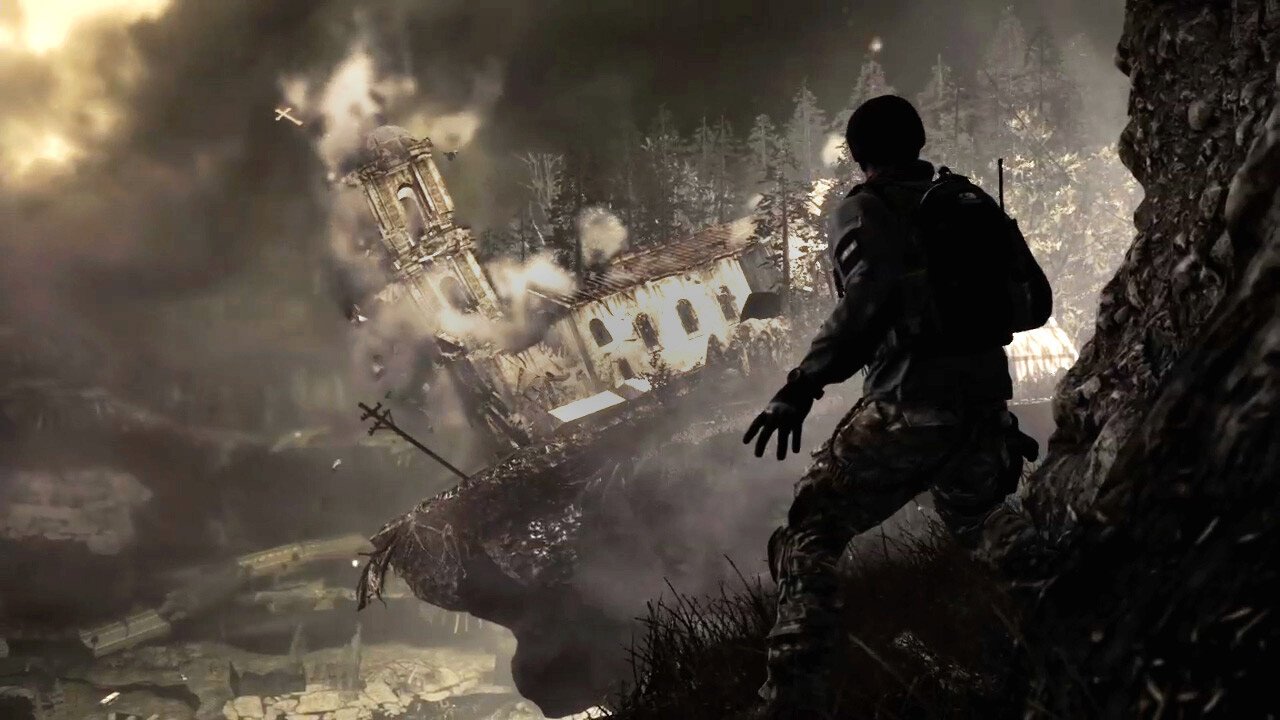From a capitalist perspective, it’s fascinating – and perhaps a little frightening – to see how certain products can be like asteroids hitting the market, creating craters and ripples that have long-lasting effects on everything around them in the consumer landscape. One such product is Call of Duty, a game so successful, so dangerous to other games, that most publishers, including Activision, the franchise owners, will do anything to avoid being released simultaneously and thus ignored by the public.
The only game brave enough to stand up to an annual Call of Duty release is another annual series, Assassin’s Creed, a third-person, big-budget, historical/conspiracy action/adventure game. It’s so different from Call of Duty that it’s aimed at a completely different audience.

This year, we’re seeing the effects of that in a big way. Right now the only two titles tentatively confirmed for November 2014 are Project Cars and Dreamfall Chapters: The Longest Journey. Both of those titles are indie efforts and don’t even fall in the same AAA “class” as other games.
There’s no confirmed release date for either the latest Call of Duty or Assassin’s Creed, but both have been teased and are probably well on their way to killing relationships and nurturing ulcers as the respective studios race to meet their immovable November deadline. The reason for a November release is simple; it gives games enough time to make a splash on their own while still being close enough to Christmas to justify purchases as gifts if they prove to be a hot ticket item.
So that’s what we’re down to in November: two tentatively scheduled indie releases and The Big Two. Nothing else is committing to a release in the same month, though E3 might change things in that regard in a few weeks. October, on the other hand, is already fit to burst.

Originally, we had Batman: Arkham Knight to look forward to as the first big October release, but that’s now been delayed to some point in 2015, most likely February or March. However, that retreat was far from crippling. Alien: Isolation has committed to a very sensible October release for a horror game. Drive Club has also finally found itself a release date from endless string of delays and is now on the same day as Alien, October 7th. Finally, the first big RPG of the current generation, Dragon Age: Inquisition, is lumbering onto the scene on… you guessed it, October 7th.
The one thing that all of these games have in common is that in their understandable attempt to avoid competing with Call of Duty, they’re now all competing with each other. On the same day, even. In addition to those big titles, EA is also throwing their hat in with a new Lord of the Rings game while both NBA2K and WWE2K get their respective yearly updates in the same month from 2K Sports.
This wasn’t always the case, of course. There was a time before Call of Duty when plenty of publishers were happy to release their games in November. It was the ideal time for the same reason Activision selected November as their release date. Call of Duty has changed all that, especially with the all-important “mainstream” audience that only buys two or three games a year, if that.

One of those games will always be Call of Duty, but that leaves precious few other games as viable candidates, and a release date in the same window negates almost any possibility of addition to a mainstream collection. Even Activision suffered at the hands of Call of Duty with games like their own Tony Hawk and Guitar Hero franchises getting annihilated by their bigger, contemporary military sibling. Spacing games out, however, gives the games more room to breathe for people that don’t buy more than one game every month.
It seems like these days if you’re not a big COD or AC fan, October is officially the month to get excited. Maybe when the popularity of COD finally lapses, sometime years from now, we’ll see a return to November as the month for more than one or two big releases.




